Hydration Tool
We have created an easy tool for you to know your daily adequate intake based on the data provided by EFSA.
Are you drinking enough?
Do you want to know the EFSA advice for water intake for your age and sex?
680 mL/day or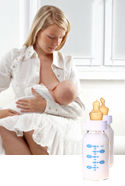
100-190 mL/kg/day
Water sources: human milk (or infant formula)
Note that this recommended intake only applies to conditions of moderate environmental temperature and moderate physical activity levels. Water intake should be increased under both high temperatures and physical activity level.
0.8 – 1.0 L/day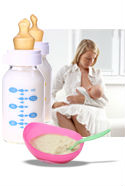
Water sources: human milk (or infant formula) and age-appropriate complementary food and beverages.
Note that this recommended intake only applies to conditions of moderate environmental temperature and moderate physical activity levels. Water intake should be increased under both high temperatures and physical activity level.
1.1 – 1.2 L/day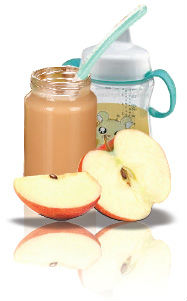
Water sources: According to the EFSA the amount of water that is deemed adequate includes water from drinking water, beverages of all kinds, and from food moisture.
It is calculated that of the total water consumed, 20-30% typically comes from food and 70-80% from beverages, but this may vary greatly, depending on the diet and individual choices.
Note that this recommended intake only applies to conditions of moderate environmental temperature and moderate physical activity levels. Water intake should be increased under both high temperatures and physical activity level.
1.3 L/day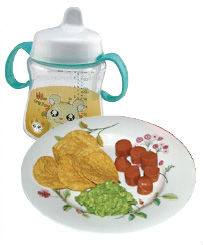
Water sources: According to the EFSA the amount of water that is deemed adequate includes water from drinking water, beverages of all kinds, and from food moisture.
It is calculated that of the total water consumed, 20-30% typically comes from food and 70-80% from beverages, but this may vary greatly, depending on the diet and individual choices.
Note that this recommended intake only applies to conditions of moderate environmental temperature and moderate physical activity levels. Water intake should be increased under both high temperatures and physical activity level.
1.6 L/day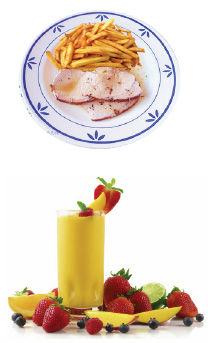
Water sources: According to the EFSA the amount of water that is deemed adequate includes water from drinking water, beverages of all kinds, and from food moisture.
It is calculated that of the total water consumed, 20-30% typically comes from food and 70-80% from beverages, but this may vary greatly, depending on the diet and individual choices.
Note that this recommended intake only applies to conditions of moderate environmental temperature and moderate physical activity levels. Water intake should be increased under both high temperatures and physical activity level.
 2.1 L/day
2.1 L/day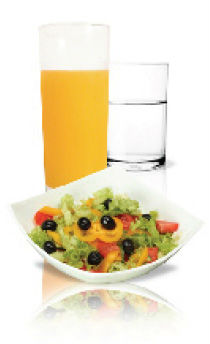
Water sources: According to the EFSA the amount of water that is deemed adequate includes water from drinking water, beverages of all kinds, and from food moisture.
It is calculated that of the total water consumed, 20-30% typically comes from food and 70-80% from beverages, but this may vary greatly, depending on the diet and individual choices.
Note that this recommended intake only applies to conditions of moderate environmental temperature and moderate physical activity levels. Water intake should be increased under both high temperatures and physical activity level.
 1.9 L/day
1.9 L/day
Water sources: According to the EFSA the amount of water that is deemed adequate includes water from drinking water, beverages of all kinds, and from food moisture.
It is calculated that of the total water consumed, 20-30% typically comes from food and 70-80% from beverages, but this may vary greatly, depending on the diet and individual choices.
Note that this recommended intake only applies to conditions of moderate environmental temperature and moderate physical activity levels. Water intake should be increased under both high temperatures and physical activity level.
 2.5 L/day
2.5 L/day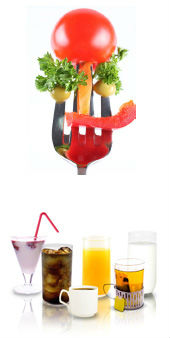
Water sources: According to the EFSA the amount of water that is deemed adequate includes water from drinking water, beverages of all kinds, and from food moisture.
It is calculated that of the total water consumed, 20-30% typically comes from food and 70-80% from beverages, but this may vary greatly, depending on the diet and individual choices.
Note that this recommended intake only applies to conditions of moderate environmental temperature and moderate physical activity levels. Water intake should be increased under both high temperatures and physical activity level.
 2.0 L/day
2.0 L/day
Water sources: According to the EFSA the amount of water that is deemed adequate includes water from drinking water, beverages of all kinds, and from food moisture.
It is calculated that of the total water consumed, 20-30% typically comes from food and 70-80% from beverages, but this may vary greatly, depending on the diet and individual choices.
Note that this recommended intake only applies to conditions of moderate environmental temperature and moderate physical activity levels. Water intake should be increased under both high temperatures and physical activity level.
 2.3 L/day
2.3 L/day
Water sources: According to the EFSA the amount of water that is deemed adequate includes water from drinking water, beverages of all kinds, and from food moisture.
It is calculated that of the total water consumed, 20-30% typically comes from food and 70-80% from beverages, but this may vary greatly, depending on the diet and individual choices.
Note that this recommended intake only applies to conditions of moderate environmental temperature and moderate physical activity levels. Water intake should be increased under both high temperatures and physical activity level.
 2 L + 0.7 L/day*
2 L + 0.7 L/day*
Water sources: According to the EFSA the amount of water that is deemed adequate includes water from drinking water, beverages of all kinds, and from food moisture.
It is calculated that of the total water consumed, 20-30% typically comes from food and 70-80% from beverages, but this may vary greatly, depending on the diet and individual choices.
*According to the EFSA, water intake for lactating women should compensate for the loss of water through milk production: an additional 600 – 700 mL should be added to the 2 L adequate daily intake.
Note that this recommended intake only applies to conditions of moderate environmental temperature and moderate physical activity levels. Water intake should be increased under both high temperatures and physical activity level.
- The panel on dietetic products, Nutrition and Allergies of the European Food Safety Authority (EFSA)* issued in 2010 a Scientific Opinion on Dietary Reference Values for water where reference values for total water intake were established. Note that the amount of water that is deemed adequate applies only to conditions of moderate environmental temperature and moderate physical activity levels. These intake values include water from drinks and from foods.
- The Adequate Intake is a recommended average daily intake level, based on experimentally derived intake levels or approximations of observed intakes by a group (or groups) of apparently healthy people that are assumed to be adequate. Some individuals will need less than this and some will need more, and the amounts needed will vary from day to day.
- Water requirements vary between individuals and also vary according to diet, environmental conditions, activity levels and a range of other factors. Adequate intakes can be defined only for specific age ranges.
- We have created an easy tool for you to know your daily adequate intake based on the data provided by EFSA.
Source: EFSA Panel on Dietetic Products, Nutrition, and Allergies (NDA); Scientific Opinion on Dietary reference values for water. EFSA Journal 2010; 8(3):1459. [48 pp.]. doi:10.2903/j.efsa. 2010.1459.
Available online: http://www.efsa.europa.eu/en/efsajournal/pub/1459.htm